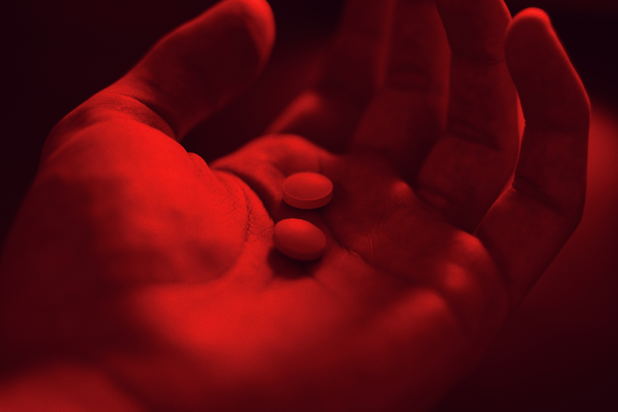Has insomnia stopped you from getting a good night's rest? You're not alone!
We're a sleep-deprived nation, with research showing that nearly 70 percent of Americans report struggling with sleep at least once a week. Sleep problems can cause a host of issues ranging from weakened immune systems to heightened stress to an increased risk of certain cancers.
To get in the valuable shut-eye, many people turn to sleep aids to help alleviate insomnia symptoms. While these medications can provide some immediate relief, they can also cause long-term dependency problems.
Sleeping Aids For Insomnia
Prescription sleeping aids are classified under sedative-hypnotic substances. Substances may include benzodiazepines, barbiturates, and other hypnotics. These substances act by depressing the central nervous system, which triggers the mind and body to relax and fall asleep.
Benzodiazepines (Xanax, Valium, Ativan) are anti-anxiety medications that can also increase drowsiness. Though they may be helpful with treating insomnia in the short-term, they can be habit-forming. Barbiturates act by depressing the central nervous system and causing sedation in short or long-acting bursts.
Newer medications, such as Ambien, Lunesta, and Sonata, claim to be less habit-forming than benzodiazepines, but they can still create psychological complications.
In addition to prescription substances, there are numerous sleeping aids available on drug store shelves. These drugs contain diphenhydramine, an ingredient intended to treat seasonal allergies that also produce drowsiness.
Although all sleeping aids are prescribed for oral use, some people crush and snort the substance to receive instant effects. People may also combine sleeping aids with other substances like alcohol or prescription opioids. Polysubstance use can result in severe consequences that may include death.
Understanding Sleeping Aid Addiction
Doctors typically prescribe sleeping aids for short-term use, with the average prescription length ranging from a few days to two weeks. That said, many people continue to use these them for several months or years.
Continued, chronic use can produce psychological dependence. As people rely on these substances for sleep, they may start taking more than their initial dose. This can lead to a habit-forming problem, and it can also increase the risk of overdose.
Some people struggling with chronic sleeping pill misuse don't recognize the problem until it's too late. However, the following symptoms may indicate the presence of a developing or current addiction:
- taking more of the sleeping aid than initially prescribed
- experiencing panic, irritability, or fear if medication is not available
- purchasing sleeping aids illegally
- experiencing intense cravings
There is a risk of overdosing on sleep aids. In fact, mixing alcohol and sleeping medication can stop breathing, which can result in death.
Getting Help
As mentioned, insomnia medication is intended to be a short-term solution. However, chronic, long-term use can lead to dependency problems. If this occurs, the individual may need professional treatment.
Insomnia treatment can help individuals learn alternative strategies to improve relaxation and sleep. Additionally, physicians and psychiatrists may work with individuals to find appropriate medication alternatives if necessary.
Sleeping aid misuse can become a progressive issue that may not resolve on its own. If you're struggling, it is essential to reach out for the help you deserve.
If you or someone you know is seeking help from addiction, please visit our directory of treatment centers or call 800-772-8219 to start the path to recovery today.








